Anger is a powerful emotion that we all experience from time to time. It’s a natural human response to perceived threats, injustices, or frustrations. However, when left unchecked, anger can lead to destructive behaviors and negatively impact our relationships, health, and overall well-being. The good news is that we can learn to manage our anger in positive ways, transforming this intense emotion into a catalyst for personal growth and constructive change.
In this comprehensive guide, we’ll explore effective strategies for dealing with anger positively, backed by expert insights and real-life examples. Whether you’re grappling with your own anger issues or seeking to help someone else, these techniques will equip you with the tools to navigate this challenging emotion with grace and wisdom.
What is Anger?
Before we dive into strategies for managing anger, let’s better understand what anger is and how it affects us. Anger is a complex emotion that involves physiological and psychological responses. When we experience anger, our body releases stress hormones like adrenaline and cortisol, preparing us for a “fight or flight” response.
According to the American Psychological Association, anger is “an emotion characterized by antagonism toward someone or something you feel has deliberately done you wrong.” While anger itself isn’t inherently negative, how we express and manage it can have significant consequences.
Example: Imagine you’re stuck in heavy traffic and running late for an important meeting. Your heart races, your muscles tense, and you feel a surge of frustration. This is anger in action, triggered by a situation beyond your control.
Recognize Your Triggers
The first step in managing anger positively is identifying what triggers it. Anger triggers are specific situations, events, or behaviors that provoke an angry response in you. Triggers can be external (e.g., other people’s actions) or internal (e.g., your thoughts or perceptions). By recognizing these triggers, you can prepare yourself to respond more positively when faced with anger-inducing situations.
Example: If you find yourself getting angry when stuck in traffic, acknowledge this as a trigger. Once identified, you can work on developing specific strategies to manage your anger in these situations, such as listening to calming music or reframing your thoughts about the delay.
Practice Mindfulness
Mindfulness is a powerful tool for managing anger. By focusing on the present moment without judgment, you can create space between your emotions and your reactions, allowing for more thoughtful responses.
The Mayo Clinic suggests that mindfulness can reduce stress and improve overall well-being. When it comes to anger management, mindfulness can help you:
- Observe your anger without getting caught up in it
- Recognize physical sensations associated with anger
- Pause before reacting, allowing for a more measured response
Example: When you feel anger rising, take a moment to focus on your breath. Notice the sensation of air entering and leaving your body. This simple act can help ground you in the present moment and prevent an impulsive angry reaction.
Use Relaxation Techniques
Relaxation techniques can be incredibly effective in managing anger. These methods help calm your mind and body, reducing the intensity of anger and allowing for a more rational approach to the situation.
Some effective relaxation techniques include:
- Deep breathing: Take slow, deep breaths from your diaphragm.
- Progressive muscle relaxation: Tense and then relax different muscle groups in your body.
- Visualization: Imagine a calm, peaceful scene.
The National Center for Complementary and Integrative Health provides detailed information on various relaxation techniques and their benefits.
Example: When you feel anger building, excuse yourself for a moment if possible. Find a quiet space and practice deep breathing for a few minutes. Inhale slowly for a count of four, hold for four, then exhale for four. Repeat this process until you feel calmer and more in control.
Improve Communication Skills
Effective communication is key to managing anger in interpersonal situations. By expressing your feelings and needs clearly and assertively, you can often resolve conflicts before they escalate to anger.
Key communication skills for anger management include:
- Active listening: Pay attention to what others are saying without interrupting.
- “I” statements: Express your feelings using “I” instead of “you” to avoid blame.
- Assertiveness: Stand up for your rights while respecting others’.
The University of Colorado Boulder offers valuable insights into healthy communication strategies that can be applied to anger management.
Example: Instead of saying, “You always forget important dates!” try, “I feel hurt when our anniversary is forgotten. It’s important to me that we remember and celebrate it together.”
Reframe Your Thoughts
Cognitive reframing is a technique that involves changing how you think about a situation to alter your emotional response. By challenging and changing negative thought patterns, you can reduce anger and respond more positively to challenging situations.
Steps to reframe your thoughts:
- Identify the negative thought
- Challenge its validity
- Replace it with a more balanced or positive perspective
The Cognitive Behavioral Therapy Center provides more information on how cognitive behavioral techniques can be applied to anger management.
Example: If you’re stuck in traffic and think, “This is awful, my whole day is ruined!” try reframing it to, “This delay is frustrating, but it’s temporary. I can use this time to listen to my favorite podcast or plan my day.”
Exercise Regularly
Regular physical activity can be an excellent outlet for anger and stress. Exercise releases endorphins, which are natural mood boosters, and provides a healthy way to channel intense emotions.
According to the Mayo Clinic, exercise can help manage stress and anger by:
- Reducing stress hormones like cortisol
- Increasing production of endorphins
- Improving sleep quality
- Boosting self-confidence
Example: Incorporate a 30-minute walk or jog into your daily routine. When you feel anger building, go for a quick walk around the block or do some jumping jacks to release tension.
Seek Professional Help
If you find that anger is significantly impacting your life or relationships, it may be beneficial to seek help from a mental health professional. A therapist can provide personalized strategies and support for managing anger effectively.
Therapy options for anger management include:
- Cognitive Behavioral Therapy (CBT)
- Dialectical Behavior Therapy (DBT)
- Psychodynamic Therapy
The American Psychological Association offers resources for finding a psychologist specializing in anger management.
Example: If you find yourself consistently struggling with anger in your relationships or at work, consider scheduling an appointment with a therapist who specializes in anger management. They can help you develop personalized coping strategies and work through underlying issues contributing to your anger.
Develop Empathy
Empathy, the ability to understand and share the feelings of another, can be a powerful tool in managing anger. By putting yourself in someone else’s shoes, you can often diffuse anger and find more constructive ways to address conflicts.
Steps to develop empathy:
- Listen without judgment
- Try to understand the other person’s perspective
- Acknowledge their feelings, even if you disagree with their actions
The Center for Nonviolent Communication provides resources on empathic communication that can be applied to anger management.
Example: If a colleague misses a deadline, instead of immediately getting angry, try to understand their situation. Maybe they’re dealing with personal issues or were overwhelmed with other work. This empathetic approach can lead to a more constructive conversation about workload management.
Practice Forgiveness
Forgiveness is a powerful tool for managing anger, especially in long-term relationships or situations where grudges can build up over time. Forgiveness doesn’t mean condoning hurtful behavior, but rather letting go of anger and resentment for your own well-being.
According to the Mayo Clinic, forgiveness can lead to:
- Healthier relationships
- Improved mental health
- Less anxiety, stress, and hostility
- Lower blood pressure
- Fewer symptoms of depression
Example: If a friend repeatedly cancels plans at the last minute, causing you to feel angry and undervalued, practice forgiveness. Have an open conversation about how their actions affect you, but also be willing to let go of past instances and move forward positively.
Conclusion
It’s important to stay cool and not get too upset. Make sure to listen to what others are saying. Try to understand their feelings and say sorry if you need to. Think of ways to fix the problem and be clear about what’s okay and what’s not. Sometimes, you might need to step away and take a break. When you do these things, arguments can actually help you learn and get better at handling tough situations.


